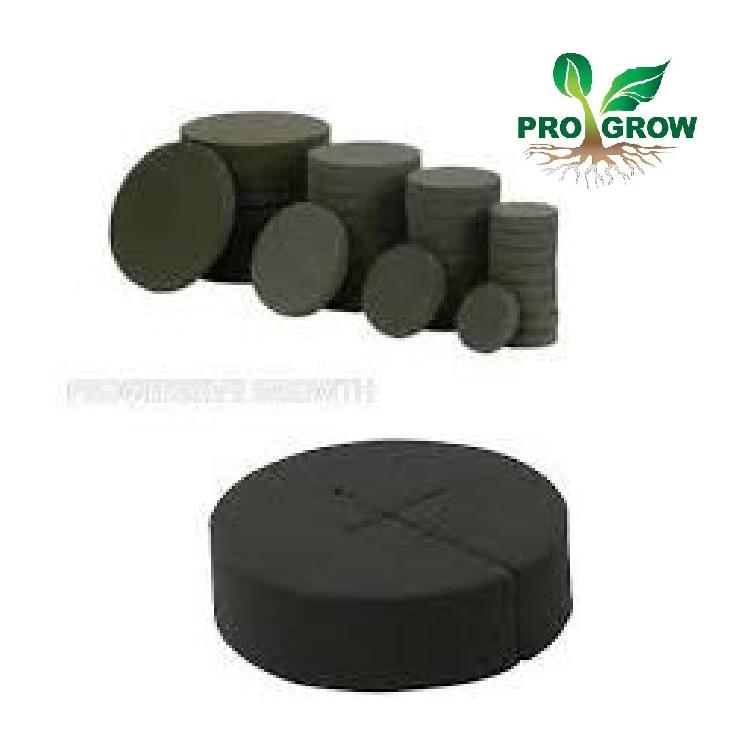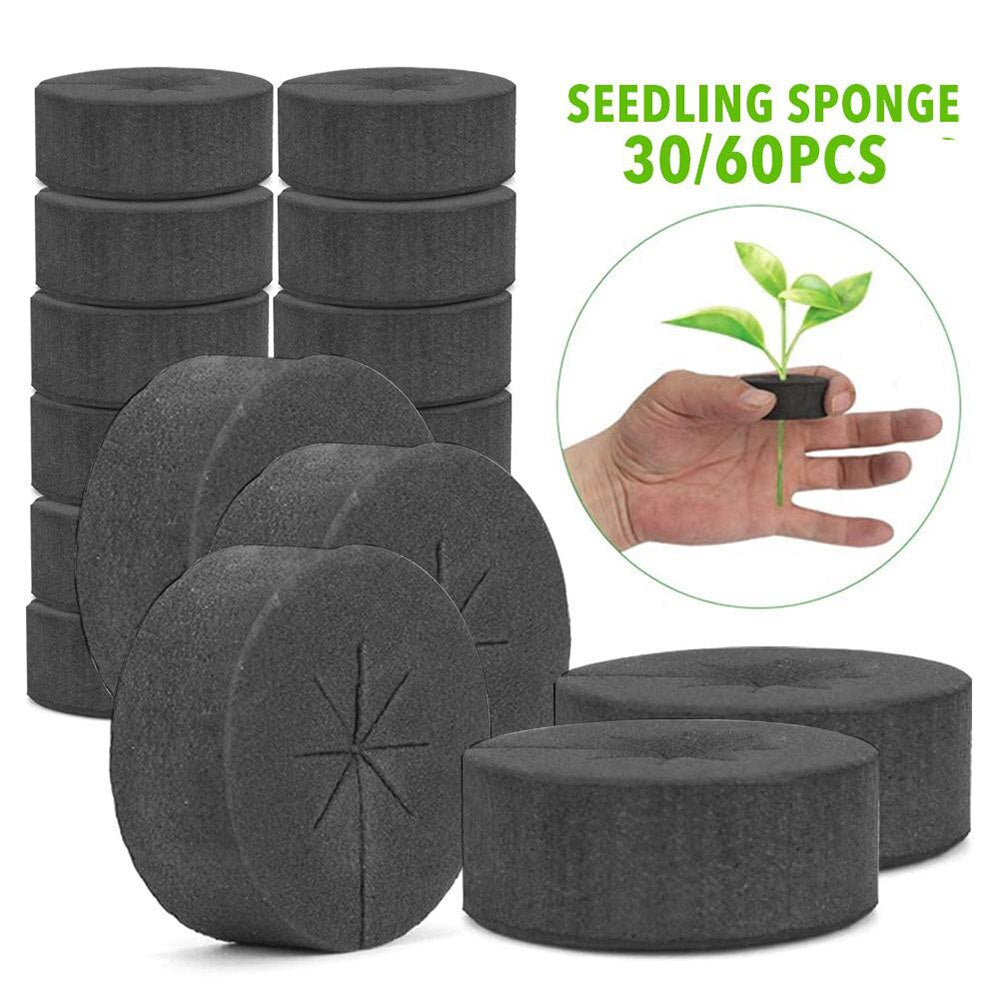Neoprene Disks (Neoprene Collars, Neoprene Disks Inserts, Clone Collars) fit inside net pots and are used to support plants growing in Hydroponic or Aeroponic Systems. Some growers prefer neoprene discs over plastic lids because they can place the stem of a new cutting into the slit of the insert so that the cutting doesn’t slide down or move.
Neoprene Discs are used to support your cuttings for true medium free growing. They fit perfectly in the top of the Net Pots and firmly keep your cuttings upright and stable while their aeroponic roots begin to form. The pots are suspended below the top tray and a fine mist of water and nutrient is constantly sprayed around the base of the plants. This misting stimulates fast growth as the roots are encouraged to grow out to access the water and nutrient. The plants have superb access to oxygen and plants are typically ready to transplant after just 7 to 10 days They can easily be removed from your cuttings once the time comes to transplant them into your main growing system.
Aeroponics Defined
Aeroponic systems nourish plants with nothing more than nutrient-laden mist. The concept builds off that of hydroponic systems, in which the roots are held in a soilless growing medium, such as coco coir, over which nutrient-laden water is periodically pumped. Aeroponics simply dispenses with the growing medium, leaving the roots to dangle in the air, where they are periodically puffed by specially-designed misting devices.
In aeroponics systems, seeds are “planted” in pieces of foam stuffed into tiny pots. Which are exposed to light on one end and nutrient mist on the other. The foam also holds the stem and root mass in place as the plants grow.
The Advantages of Aeroponics
Who knew naked roots could survive, much less thrive? It turns out that eliminating the growing medium is very freeing for a plants’ roots. The extra oxygen they are exposed to results in faster growth. Aeroponic systems are also extremely water-efficient. These closed-loop systems use 95 percent less irrigation than plants grown in soil. And since the nutrients are held in the water, they get recycled, too.
In addition to these efficiencies, aeroponics’ eco-friendly reputation is bolstered by the ability to grow large quantities of food in small spaces. The approach is mainly employed in indoor vertical farms, which are increasingly common in cities. Cutting down on the environmental costs of getting food from field to plate. And because aeroponics systems are fully enclosed, there is no nutrient runoff to foul nearby waterways. Rather than treating pest and disease with harsh chemicals, the growing equipment can simply be sterilized as needed.
Drawbacks of Aeroponics
Aeroponics systems require a bit of finesse to operate effectively. The nutrient concentration of the water must be maintained within precise parameters. And even a slight malfunction of your equipment can cause the loss of a crop. If the misters don’t spray every few minutes – maybe because the power goes out. For example – those dangling roots will quickly desiccate. And the misters need regular cleaning to keep them from becoming clogged by mineral deposits in the water.
There is also one major drawback, environmentally-speaking: aeroponic systems. Rely on electrical power to pump water through the tiny misting devices. And while they can be employed in the natural light of a greenhouse, they are more often used with energy-intensive grow lights. Solar power or other alternative energy sources can be harnessed to eliminate this drawback, however.




